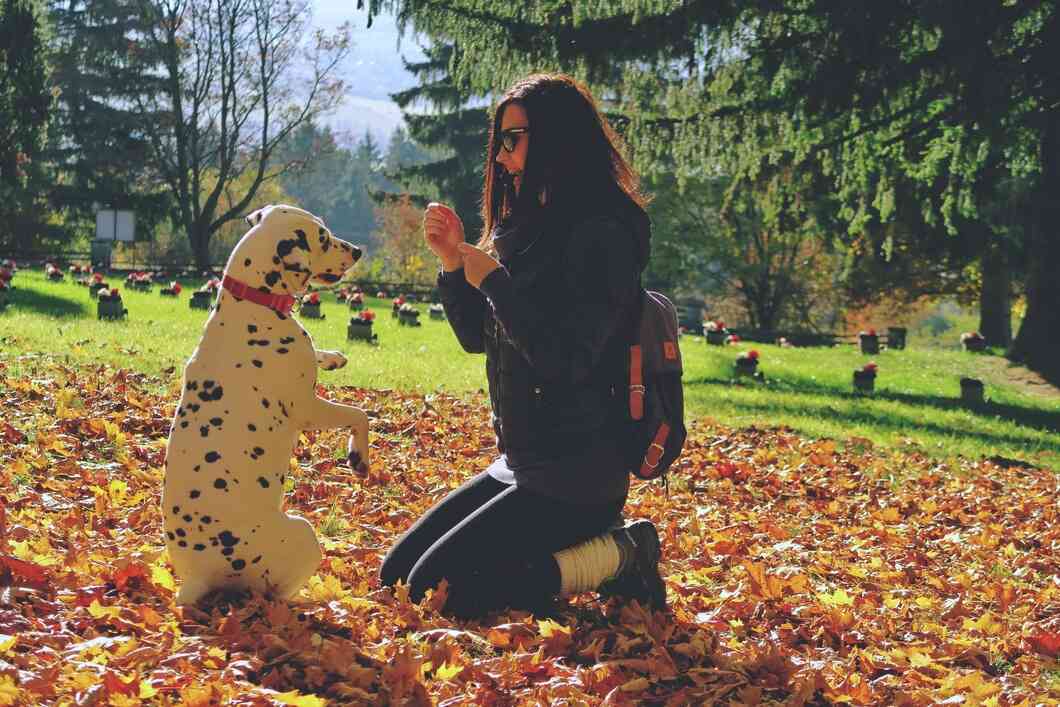7 Crore+ Customers

Affordable Premium


How to Train Your Dog at Home: Importance & Training Techniques

It is utterly exciting to bring home a furry friend. The initial days will be fun-filled with snuggles and playfulness if you bring home a puppy. Gradually, as your puppy settles into daily life, it is time to administer and understand the importance of dog training at home.
Why Is It Important to Train Dogs?
Here are 5 reasons, important and compelling enough to train your dog:
- Training Your Dog to Develop Obedience: It is quintessential to train your dog to master the act of obedience at an early age as it will help in increasing their ability to socialise in public gatherings. In addition, receiving training at home improves the relationship between the dog and their owners. Not to mention, it helps to develop a strong bond between them.
- Training Teaches Your Dog How to Socialise: Dogs have a short attention span, but they can learn social skills at a very young age. You can begin teaching your dog how to socialise by taking them on a stroll along the neighbourhood and visiting a dog park where they will be around new people and other pets.
- Training Is Fun And Helps Instil Playfulness in Your Dog: You can teach your dog playful tricks like jumping through hoops and playing fetch. Dogs have immense energy in store, and hence, channelling it in a positive way is the utmost necessity. Activities as simple as running along in an open field or around your backyard are necessary to boost your dog's playful nature.
- Training Enables Great Mental Stimulation in Your Dog: As discussed in the previous point, it is essential to channel a dog's energy in the right direction, keeping them active. They love getting jobs done; hence, running and playing around under your supervision aids superb mental stimulation, keeping your dog healthy and happy.
- Training Helps Strengthen the Bond Between Your Dog And You: It is very important to understand that dogs hold unbounded emotions for their family, and they experience separation anxiety whenever their humans leave them alone, even for a brief period. Hence, make sure you are with your dog as much as possible and have at least one person or a furry companion around whenever you are about and about.
How Does Training Your Dog at Home Make Their Behaviour Better?
It is undoubtedly true that training your dog at home will improve your dog’s behaviour and dog’s physical or psychological health. Here are some ways in which the behaviour of the dog can be improved:
- Better Behaviour: It is always noticeable that a well-trained dog adopts more self-disciplinary behaviour and behaves better in social gatherings. Also, proper training at home improves the relationship with their owner and establishes strong connections.
- Keeps Problems at Bay: Training your unrestrained dog to respond to any command helps them to stay steer clear from any problems. A well-trained dog is likely to be able to find home way more quickly than the non-trained ones.
- Initiates Socialisation: When a dog receives proper training at home, it behaves well at public gatherings and ease during socialisation with other dogs. It also learns to respect boundaries and helps to decrease anxiety and coyness.
What Are the Common Dog Commands to Train Your Dog?
Here is a list of 10 common dog commands that cater to administering dog training at home:
- Call Out Their Name or Name Recognition
- Sit-Stay
- Wait
- Heel
- Leave It/No
- Stand
- Come
- Look/Watch Me
- Take It/Drop It
- Down/Lie Down
What Are the Tips and Techniques to Train Your Dog At Home?
Techniques mentioned earlier apply while administering dog training at home. A brief recapitulation of the same follows with some additional tips:
- Reward your pet with treats and playtime and praise them for good behaviour
- Stay consistent in your training process
- Administer short training sessions
- Start small and build up training sessions gradually













